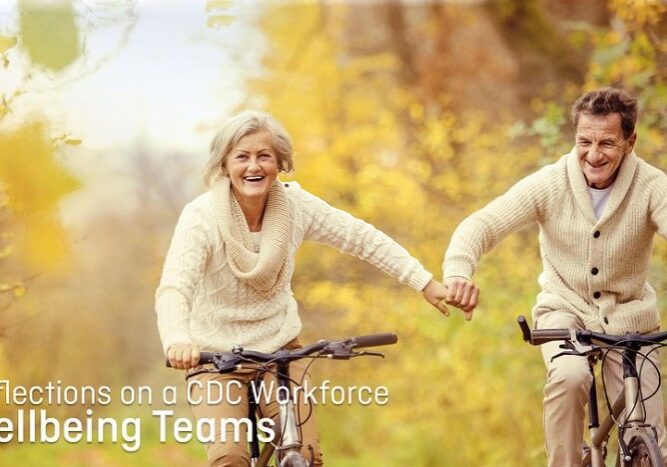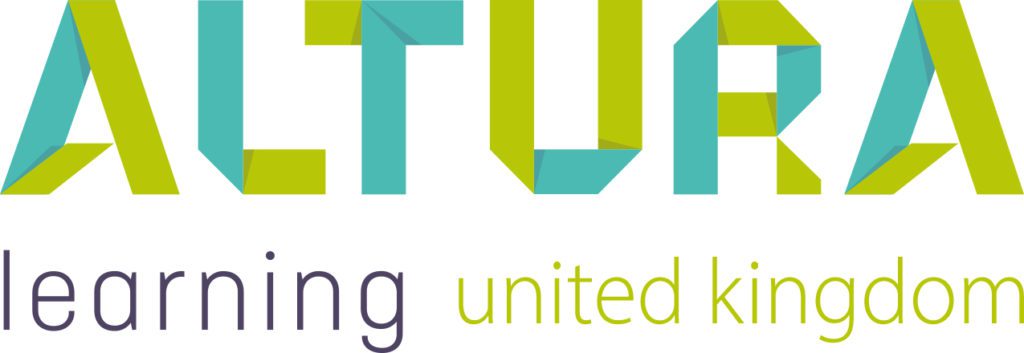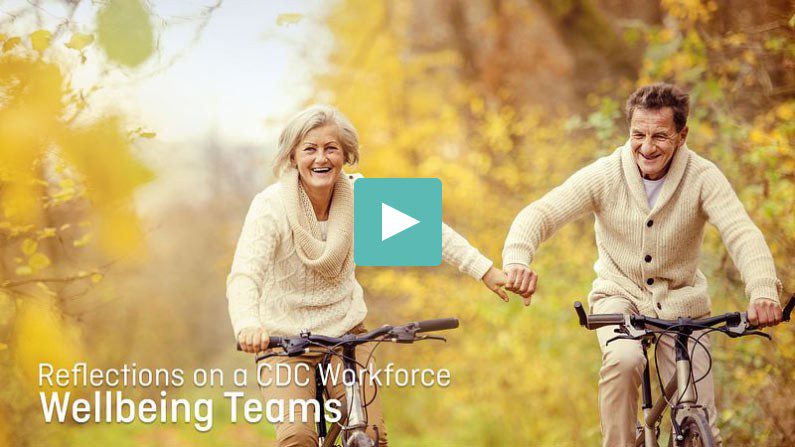Home | Altura Blog |
CDC Series Episode 2: Wellbeing Teams
October 11, 2018 | Altura Blog
Self-managed, values-led, neighbourhood-based support
Helen Sanderson pretty much wrote the book on Person Centred Care in England. After 10 years’ leading the UK’s early development work and 10 years’ as the Expert Advisor on Person Centered Approached, she decided to put her money where her mouth is, firstly in consulting and training and then as a Home Care Operator. Helen is very open about her personal challenges in a new environment, and even clearer on the critical ingredients for keeping clients and staff.
Self-Managed, Shared responsibility
Helen describes her Wellbeing Teams as being small – 10 or 12 people maximum, with a definite geographic boundary. The teams work in a multi-tasking environment where service delivery is part of all roles along with a variety of specialist tasks assigned to support the team:
- Scheduler to build the roster that supports clients’ and employees’ needs;
- Recruitment Coordinator as appointments are team decisions;
- Meeting Co-ordinator;
- Story Teller for community and related engagement;
- Coach and Wellbeing leader.
Staff Engagement and Happiness
In the USA, the ‘workplace’ is the 5th largest cause of death in the community. ‘Dying for a Pay cheque’ inspired two central themes for Wellbeing Teams — Autonomy and Tangible Social Support.
Different start – Candidate Experience as important as Client Experience
The next topic Helen discusses is to find a different way to bring people into the sector and a different way to pay attention to their needs:
- ‘We intentionally look outside the sector to avoid ‘recycled’ candidates and inheriting poor practice that will not cut it in a Wellbeing Team’
- ‘We recruit for values, make it a joint decision and monitor candidate experience for all, not just the successful’
- Any new starter in a Wellbeing team goes through a 4-day induction. “1 page profiles” as a basis of team building
- Helen focuses on identifying work and development opportunities for her staff.
Biggest lesson
Helen’s biggest lesson over the last 15 years in Social Care: If you are not being Person Centred with your staff you cannot expect them to be Person Centred with their clients.
Whilst in its early days, Wellbeing Teams are based on a proven model, localized where necessary, but retaining the values, engagement, autonomy and social support that deliver ownership of client and team outcomes.
In a series of blogs supporting 5 videos recently recorded, 7 UK Care Provider CEOs discuss their Workforce observations and learning through hindsight. Introduced by John Pollaers and coinciding with the release of his Australian Workforce Strategy Report, their feedback is both candid and instructional.
These reflections on a CDC environment videos and blog posts were created in a partnership between Altura Learning, Care Advantage Behavioural Screening and Neil Eastwood’s Recruitment Masterclass. The input from the 7 UK business leaders has been invaluable and the time and effort they have put in much appreciated.
Altura Learning have partnered with Care Advantage and Neil Eastwood, to produce an inspirational discussion panel with 7 successful CEOs from the UK Social Care Sector to talk about the workforce challenges, strategies and hindsight after many years in a person-centered environment.



